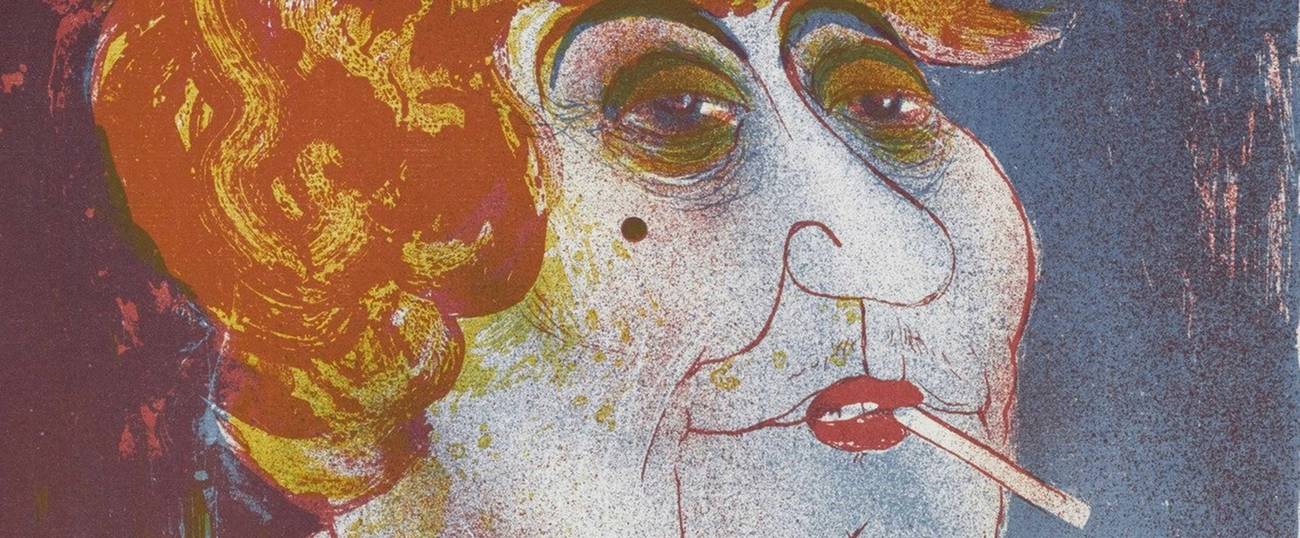The Grapes of Roth
Philip Roth’s legacy of writerly narcissism left a generation of young novelists with the wrong idea of what makes great literature





Philip Roth needs no introduction. Now 78, he has been awarded every major literary commendation America has to offer and is beloved by generations of readers, American Jews in particular.
But while Roth’s merit as a writer is a measure of personal taste—like all art, it makes some swoon and leaves others unmoved—his place in the American canon deserves a second look. Like most second looks, this one, too, reveals the pockmarks and blemishes that the besotted beholder might have ignored the first time around. And while Roth’s body of work is multitudinous and diverse, any discussion of his writing must begin with Portnoy’s Complaint, the book that cemented Roth’s reputation and whose lascivious ghost still haunts much of the now-elderly writer’s novels, as well as those of his young successors, the current generation of American writers.
Because Roth is fond of similes—there’s an amusing bit in Portnoy’s Complaint in which the youthful Alexander hears an elderly man say he’d slept like a log and is moved, Roth writes, by “the full force” of likening one thing to another—let us attempt to rethink him thusly: Portnoy’s Complaint, as well as most of Roth’s other novels, is like a nasty tumble down a steep slope—a throbbing rush of endorphins as it unfurls, a bit of fun for those watching from the sidelines, but, overall, little more than a mess of broken bones and long-term aches.
In keeping with the medical mindset, let us begin looking at Roth’s legacy by parsing the pseudo-clinical definition preceding the novel that catapulted him to stardom. “Portnoy’s Complaint,” he writes, is “a disorder in which strongly-felt ethical and altruistic impulses are perpetually warring with extreme sexual longings, often of a perverse nature.”
This quip serves as a pithy history of American letters. What, after all, was Walt Whitman if not a bard of the struggle between selfish, sexual urges and the call of society at large? What was Emily Dickinson if not a hermit cryptically communing with the culture? Or Hemingway, driven by his libido both to bedrooms and battlefields? Whether they believed in transcendence or predetermination, they shared a common, American faith in the individual and in his or her ability to emerge from the solipsistic fog that enshrouds us all and into the bright, well-lighted spaces we share with our fellow men. Put simply, while all American writers write first and foremost of the individual, the great ones are, to use a sterling phrase, large enough to contain multitudes; peek into Emerson, say, and see America in its entirety.
Do the same with Roth, and you’d be lucky to see much past New Jersey. That is because Roth’s primary preoccupation is Roth. This is most evident in Portnoy, a novel designed as a long rant on the analyst’s couch in order to permit its author the freedom to indulge in the brute vulgarities only confessions may comfortably contain. But read Roth’s subsequent novels, and you hear the same music of me: Nathan Zuckerman, David Kepesh, Mickey Sabbath—they are all facsimiles of their creator.
That alone isn’t much reason to criticize Roth, but their recurring base obsessions are. Here, for example, is Portnoy, wailing about his former wife, whom he regretfully nicknames The Monkey. “The poetry she used to read to me at Antioch,” he writes, “the education she was giving me in literature, a whole new perspective, an understanding of art and the artistic way … oh, why did I ever let her go! I can’t believe it—because she wouldn’t be Jewish? ‘The eternal note of sadness—’ ‘The turbid ebb and flow of human misery—’ ” Roth leaves that sentence unfinished, with that bit from Sophocles standing on the precipice of a new paragraph. It’s a powerful and subtle note: Having received from his lover the gift of a literary education, he turns around and realizes that by leaving her his life has acquired much in common with Greek tragedies.
You don’t have to wait more than a line, however, before Portnoy’s mind wanders south: “Only,” he writes, “is this human misery? I thought it was going to be loftier! Dignified suffering! Meaningful suffering—something perhaps along the line of Abraham Lincoln. Tragedy, not farce! Something a little more Sophoclean was what I had in mind. The Great Emancipator, and so on. It surely never crossed my mind that I would wind up trying to free from bondage nothing more than my own prick. LET MY PETER GO! There, that’s Portnoy’s slogan. That’s the sotry of my life, all summed up in four heroic dirty words.”
It’s a perfect embodiment of Roth’s foundational move. First, set up a lofty premise, imbued with suffering and meaning and art, a furnace of emotions, every bit as universal as the great masterworks. Then, talk about your dick.
The superabundance of cock in Roth’s work is more than a stylistic choice aiming to shock and unnerve. It transcends even the fair accusations of chauvinism frequently lobbed at Roth by feminist critics and former lovers. It is his primary state of mind. Like a true artist, he feels that turbid ebb and flow very acutely; a delicate and accurate seismograph of suffering, he registers its minute tremors. But he knows no other way to deal with the burden than unzipping his fly. Whereas Whitman, most likely a closeted homosexual, tamed his libido and taught it wonderful poetic tricks, and whereas Dickinson exerted superhuman pressure and turned hers into a diamond of sublimation, Roth ejaculates. Because he is a talented writer, frequently this is pleasurable to observe. But he is never in possession of the loom—so elegantly mastered by his contemporary, Saul Bellow—that lets a writer process his or her bales of bile into beautiful fabrics that keep us warm.
None of this would have been too bad had Roth, befitting of writers of his modest ambitions and capabilities, taken his place in the second or third row of American literary lions. Instead, his intoxicating admixture of solipsism and lust made him the patron saint of a new generation of American Jewish authors, for whom writing is a torrent of self-obsessions, hang-ups, and put-ons, mitigated by nothing more than a thin veneer of intellectualism. Sam Lipsyte, for example, is Roth’s child; the angry, cynical, and foul-mouthed protagonist of his recent novel, The Ask, would have felt a shock of recognition had he run into Portnoy or Sabbath, and naming a female character Vargina is what Roth might have done had he grown up a few decades later, under the auspicious glow of Internet porn. Even Hollywood is in Roth’s debt: The creators of the eminently successful American Pie series took a page out of Roth’s book when they had their lead character masturbate by copulating with a pie, a sweeter version of Portnoy and his liver.
Roth’s appeal isn’t hard to understand. In an age when technological platforms and cultural edicts both favor a proliferation of the personal and the profane, he is the Grand Old Man, the master whose works are now gospel for anyone too lazy or selfish or dull to embark on the sort of exploration of individualism that has historically made American letters such a rich and blooming field. Those who grew up on Roth’s novels may be forgiven for believing that art entails not Dickinson’s measured sublimation but Roth’s uninhibited masturbation and were only too thrilled to follow his suit; it is, after all, much easier and, I imagine, more satisfying to crown the penis king and abandon morality, civility, responsibility, and all the other blocks with which we build, step by painstaking step, the bastions of a worthwhile society.
That must never happen. Whether we enjoy Philip Roth’s work or not, we’d do well to reconsider what he has wrought, and make sure that we fall on the right side in the eternal struggle between the heart and the groin. That, after all, is what great writing has always helped us accomplish; the rest is little more than self-gratification.
Liel Leibovitz is editor-at-large for Tablet Magazine and a host of its weekly culture podcast Unorthodox and daily Talmud podcast Take One. He is the editor of Zionism: The Tablet Guide.